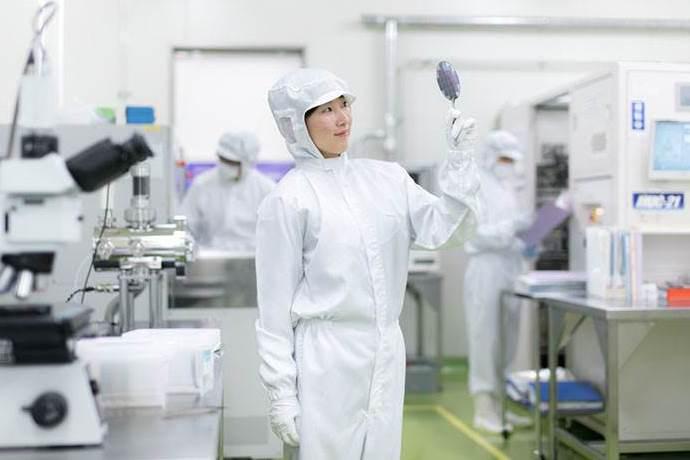
Electrical and Electronic Information Engineering

Humans, Earth, and eECo Future
Electrical and Electronic Information Engineering is composed of four fields: electronic materials, electrical systems, integrated electronics, and information and communication systems.
In the field of electronic materials, students develop magnetic hologram applications, nanophotonic devices, and high-performance hybrid materials, etc. making full use of various new material development technologies.
In the field of electrical systems, students develop technologies for the generation, transportation, storage and utilization of next-generation electric energy, and applications that combine these technologies.
In the field of integrated electronics, students develop combined optical and electronic devices, smart sensors, biosensors, and MEMS, etc. using university LSI production facilities that can perform everything from design to fabrication and evaluation.
In the field of information and communication systems, students develop high-frequency circuits, communication systems, high-speed processing, and security technologies, etc. for transmitting and processing information and energy wirelessly.
In this way, the department conducts education and research covering a wide range of fields.
From the undergraduate school to the graduate school master's and doctorate courses, students learn state-of-the-art electrical and electronic information engineering that places emphasis on practical skills through a comprehensive "spiral type education and research system."
The department prepares tailor-made state-of-the-art technical science curricula according to the aptitude and orientation of students, and trains leading and advanced technicians with a broad perspective and big picture thinking skills.
In addition, the department strongly collaborates with the Electronics-Inspired Interdisciplinary Research Institute (EIIRIS) and the unique educational programs promoted by the university to develop world-class educational research that will be useful for the international community and open up dreams and hopes for humanity.
*eEco (Electrical, Electronic, Communications)
*Type One Electrical Chief Engineer accreditation curriculum
Fields of Study
Electronic Materials
The department is involved in research and development on creation of substances and materials and exploration and development of electronic and electrical functional electronic materials engineering; "micro/nanoelectronic device engineering" that manipulates functional materials and develops applications for electronic devices; "Information carrier systems engineering" that pursues and applies information carrier fundamental science such as light, spin and heat; "process and manufacturing technology" that pioneers microfabrication, advanced integration, interface control, and material formation technology; and "measurement evaluation technology" that explores measurement, assessment, analysis, microanalysis, and atomic scale observation technology.
Electrical Systems
The department is involved in research and development on technology for eco-energy creation/usage/operation; power transportation/insulation systems and polymer material technology; power storage and power generation technology for rechargeable batteries, capacitors and fuel cells; functional thin film formation and surface treatment technology using discharge plasma; synthetic technology and application development of nanocarbon materials; and application of measurement and diagnostic technology for medicine, etc.
Integrated Electronics
The department is involved in research and development on intelligent sensor technology for collecting and analyzing information; biochip and optical device technology making use of nanomachining technology as the foundational technology for next-generation information processing; nanodevice manufacturing technology; and crystal growth technology for realizing new functions, etc.
Information and Communication Systems
The department is involved in research and development on wireless communication systems and sensor network technologies; power transmission and information security technology; device related technologies such as microwave integrated circuits and analog-digital integrated circuits; and information hardware technologies such as high-frequency signal processing.
Courses
Electronic Materials Design Course
Through teaching a wide range of basic knowledge and technologies in nanotechnology materials, materials, microdevices, process technologies and measurement technologies that support the field of electrical and electronic information engineering, the department creates technologies that form the foundation of various industries such as chemicals/materials, information networks, information appliance development, automobiles, robots, and medical and welfare equipment development, centering on the electronics and electrical industries, and trains engineers able to conduct cutting-edge research to open up a bright future. By setting fundamental subjects for each course, the courses are set up so that students can acquire fundamental academic skills and knowledge so that they can learn systematically.
Electrical Systems Course
The Electrical Systems Course trains engineers who can be active in a wide range of fields such as the combined fields of environment/energy, electrical and electronic industry, transportation and communications industry, materials/nanotechnology, machinery/mechatronics, biotechnology/medical care/healthcare, and primary and tertiary industries from the standpoint of an electric engineer. Recognizing the importance of electric energy that is indispensable for building a sustainable society, including the subjects necessary for acquiring the First-Class Chief Electricity Engineer's License, students acquire a wide range of fundamental knowledge and skills related to the generation, storage, transportation, control, measurement, use and application of electrical energy, and future energy systems.
Integrated Electronics Course
Students acquire a wide range of basic knowledge and skills from semiconductor device and system applications through fabrication experiments and development research on integrated circuits at the university's prestigious LSI factory. The department trains engineers who will be active in various fields such as the electronics industry, the information network field, and development of robots/medical welfare equipment in the future. Through experiments and research from design to building prototypes and evaluating integrated circuits using the university's unique LSI factory, students can master the practical skills of developing integrated electronic systems. Through systematic lectures and seminars on semiconductors, students can acquire a wide range of advanced knowledge from material properties to next-generation sensors and LSIs.
Information and Communication System Course
Information communication technology (lCT) has evolved from telephone exchanges to the internet and is now developing into the era where ICT is ubiquitous. This course trains lCT research engineers who can be active in key industry fields supporting 21st-century society such as broadcasting, communications, transportation, home electronics, medical welfare, environment, and energy. The course teaches theory and skills related to high performance integrated circuits, sensors, intelligent antennas, wave engineering, radioecology, radio interference processing, technologies for effective use of frequency spectrum, power transmission, wireless communication systems, spatial access control, networks, and information security, etc., which contribute to the creation of ICT.
[Date Created]10 Oct 2010 / [Date Updated]3 Apr 2020



